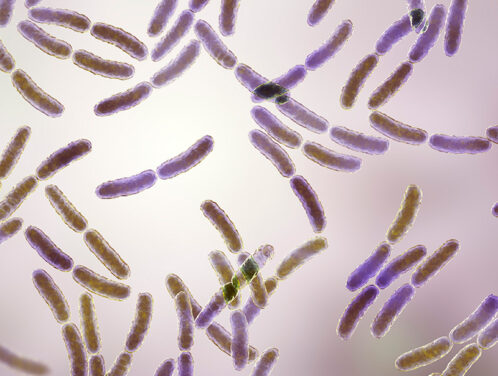If you’ve ever suffered vaginal dryness in silence, we’re here to set the record straight. About 20 percent of women who menstruate experience some dryness, and up to 83 percent of postmenopausal women are bothered by vaginal dryness. It’s an experience many women have — so there’s no need to feel awkward or embarrassed. And with many treatments available, you also don’t need to just accept it and suffer.
Vaginal dryness can occur for many reasons. One of the most common is reduced estrogen levels in the body. Estrogen is vital in maintaining healthy vaginal tissues and keeping the microbiome balanced. The vaginal microbiome is the intricate micro-ecosystem that constantly fluctuates during the menstrual cycle. When estrogen wanes during fluctuations in the menstrual cycle or at menopause, vaginal tissues thin, provide less lubrication and can lead to discomfort, itching, and painful sexual intercourse.
The vaginal microbiome is especially vulnerable to these changes during perimenopause, menopause, and post-menopause. Lower estrogen levels mean lower levels of lactobacillus, and that can contribute to vaginal atrophy, the clinical term for thinning, less elastic vaginal tissue.
Vaginal Testing and Vaginal Dryness
Other things can cause vaginal dryness too such as some antidepressants and antihistamines and Sjrogen’s syndrome, an autoimmune condition that causes dry mouth and eyes.
The good news is that there are many ways to manage and reduce the symptoms of vaginal dryness both pre-and post-menopause. If you’re living with vaginal dryness, it’s important to speak with your healthcare provider to determine the cause with appropriate vaginal health testing and to receive solutions to improve your quality of life.
Managing Vaginal Dryness and the Vaginal Microbiome
One of the most effective ways of managing vaginal dryness is using a lubricant. A water-based lubricant can be a welcome option and provide temporary relief for dryness, discomfort, and pain during intercourse. Of course, lubricants may also enhance sexual pleasure.
Vaginal moisturizers can also help restore moisture to the vagina. They can be applied every few days, and they may provide longer-lasting effects than lubricants.
When it comes to lubricants and moisturizers, we recommend speaking to your physician as many contain ingredients that can be irritating to the vagina.
Hormone Therapy and Vaginal Dryness
Many women have turned to systemic hormone replacement therapy during menopause to help manage symptoms. But it is associated with higher risks of heart disease, strokes, breast cancer and more. For that reason, it may not be for everyone. But women who do not want to choose systemic hormone replacement therapy, vaginal hormone therapy can be an option.
These therapies deliver estrogen directly to the vagina with a lower dosage than systemic therapies. The estrogen can be delivered in several ways: a vaginal estrogen cream such as Premarin, suppositories that insert low dose estrogen into the vagina (Imvexxy), a vaginal estrogen ring (Estring, Femring) that your healthcare provider inserts into the upper part of the vagina to release a consistent dose of estrogen, or a vaginal estrogen tablet (Vagifem) that you can insert in the vagina.
These estrogen therapies can help the body replace depleted estrogen with hormones that help restore and maintain vaginal tissue health, increase estrogen, and contribute to the health of the vaginal microbiota, reducing symptoms and painful intercourse.
The use of oral and vaginal probiotics in restoring the vaginal microbiome and perhaps reducing some symptoms of vaginal irritation and dryness is also well-researched. Studies with specific strains of lactobacillus rhamnosus and lactobacillus reuteri offered significant benefits to balance the microbiome during perimenopause and menopause. Remember, vaginal dryness and discomfort during sex don’t have to be a normal part of aging. You can manage dryness if you speak with your healthcare provider about the best options for you.






